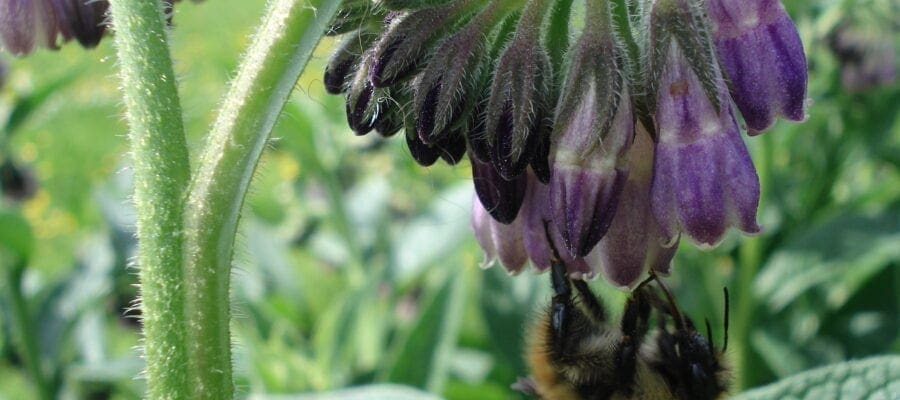A surprising new study has found that bumblebees in urban areas produce more offspring than colonies in agricultural areas
Ash Samuelson, a PhD student from the School of Biological Sciences at Royal Holloway, University of London, set out to discover why bumblebees can be more abundant in urban landscapes. Colonies of bumblebees were placed into 38 gardens and farms across the south of England, from inner-city London to Berkshire farmland. The bees were then monitored over a ten-week period. The colonies in agricultural areas were found to produce significantly fewer reproductive offspring. The colonies were also smaller, and had stored less food.
Ash Samuelson says, “Although it seems counterintuitive that the ‘unnatural’ environment of a city is beneficial to bees, we have to remember that modern agricultural areas are also very far from the habitats in which these bees evolved. So while we were surprised by the magnitude of the effect of urbanisation on bee colony success, the fact that bees performed poorly in farmland reflects the increasingly apparent realisation that intensive agriculture has negative impacts for wildlife.”
The abundance of flowers through most of the year in urban gardens and parks may help explain why bees thrive there, while the loss of wildflowers may mean bees have fewer resources in agricultural areas. Pesticides could also have a negative impact.
Ash Samuelson says, “Our results suggest that bees are able to use cities as a refuge within the barren agricultural landscape, and policymakers should focus on improving farmland for bees by supplementing floral resources and managing pesticide use.”
Find out more at https://www.royalholloway.ac.uk/research-and-teaching/departments-and-schools/biological-sciences/news/city-bees-out-breed-their-country-cousins/





